What makes a movie controversial?
By definition, controversial means to cause contention, strife, debate, or argument. Such movies typically touch on topics that the general public finds socially unacceptable. In particular, they often deal with sex, religion, violence, and politics.
Like most forms of media that allow people to send a message to the public, controversy has been present in movies since the first days of film.
Before we share our list of some of the most controversial movies of all time, let’s explore the history of controversy in film and how their topics have – and haven’t changed – over the years.
Read Also: Our List of Ten of the Most Controversial Books
The History of Controversy in Film
Even one of the earliest commercial movies, The Kiss, caused controversy in 1896. The 47-second silent short film showed the first on-screen couple’s kiss. However, intimate public displays of affection were still socially unacceptable. One critic wrote, “The spectacle of the prolonged pasturing on each other’s lips was beastly enough in life size on the stage, but magnified to gargantuan proportions and repeated three times over it is absolutely disgusting.”
The 1932 Scarface caused an uproar because audiences thought it glorified gangsters. Consequently, censors forced a version that condemned gangsterism. Nonetheless, several states banned even the censored version, and foreign showings were limited.
Moving to another movie classic, the original Psycho (1960) was full of controversial themes, including transvestism, implied incest, and necrophilia. Critics also condemned specific scenes, such as a toilet bowl flushing.
An example of politically controversial movies is the 1991 JFK. The movie deals with the assassination of John F. Kennedy. Despite its claim to truth, it often contradicts the known facts. Its second half especially caused political controversy, as it insisted that Lee Harvey Oswald had not acted alone.
Fahrenheit 9/11 (2004) is a controversial semi-documentary movie about George W. Bush’s war on terror. Conservatives attempted to block theater screenings, and the creators protested its R rating.
These are just a few controversial movies from the history of film. There are many more, but few others hit the mainstream public – and censorious minds – as hard at their time as these
More Controversial Movies (as Submitted by Our Readers)
When this post was originally published, some of our readers weren’t entirely happy with the list. In the comments, they suggested many more of the most controversial movies of all time.
Here are some of their picks.
- Last Temptation of Christ
- Kill Bill 1 and 2
- Basic Instinct
- Rambo
- Lolita
- Caligula
Now let’s get to our original list of controversial films. Note that this list is by no means complete — there are many, and so we did have to narrow it down.
Here, then, are a few of the most controversial movies of all time.
The Interview (2014) – Seth Rogen and James Franco
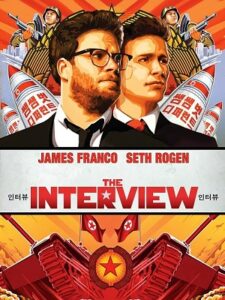 Starring: Randall Park, James Franco, Seth Rogen
Starring: Randall Park, James Franco, Seth Rogen
The Interview is a movie filled with gross humor and male bonding. There is nothing particularly controversial about it as such for audiences from most of the world.
Except for one. The Interview is a fictional meeting of a trashy TV journalist with North Korean dictator Kim Jong-un. It lampoons the despot as a misunderstood pop-lover – and apparently took the mockery a step too far for the real Kim Jong-un.
While older films had previously poked fun at his predecessors without response, the current dictator went on the offensive. In late 2014, the hacker group “Guardians of Peace” successfully attacked Sony Entertainment. They also threatened to carry out terror attacks on theaters screening it.
This turned a provocative but otherwise harmless movie into a real risk for audiences. A major debate ensued about freedom of speech and resistance to foreign threats. Major theaters did, in fact, cancel their showings – hence the “in select theaters” on the trailer below. Yet the threats and hacks were not entirely successful: Sony released the movie digitally.
The Da Vinci Code (2006) – Ron Howard
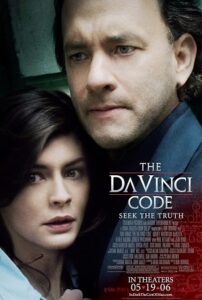
Starring: Tom Hanks, Audrey Tautou, Ian McKellen
This religious conspiracy thriller is an adaptation of Dan Brown’s best-selling novel about the members of the Priory of Sion and an underground Catholic society trying to prevent a French police cryptologist and a symbologist from telling the world about a powerful secret that’s been hidden for thousands of years.
The movie was met by harsh criticism by the Roman Catholic Church. Several bishops asked their congregation members to boycott it. There were protests outside movie theaters.
The perceived blasphemy was not the only issue: Its albino villain heavily offended people with the condition. In spite of the controversy, the movie was the second highest grossing movie of 2006 worldwide, behind Pirates of the Carribean.
United 93 (2006) – Paul Greengrass
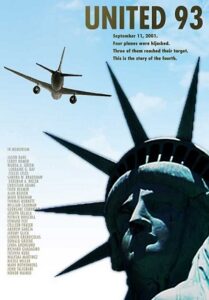
Starring: JJ Johnson, Gary Commock, Polly Adams
This is a story of the unfortunate but heroic crew members and passengers of United Flight 93, which was the fourth hijacked plane flying from Newark, NJ to San Francisco on 9/11. What made it all the more realistic was that the cast included FAA ground crew and military officers who were involved in the actual event.
In spite of the film being made very sensitively and with immense respect to those heroes without any conspiracy theories, personal drama or additions, it drew enormous criticism for its trailer.
Many said that the trailer looked as if it were a conventional thriller. There were some who thought it was too soon after the event (after five years). Universal received criticism over the perception that a national tragedy was being exploited.
The Passion Of The Christ (2004) – Mel Gibson
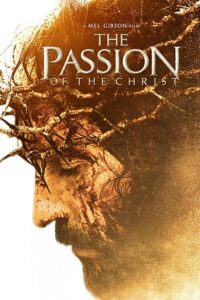
Starring: James Caviezel, Maia Morgenstern, Christo Jivkov
Fear, excitement, expectation, passion, tears and wonder filled movie theaters. Many viewers reported life-changing experiences. This movie brutally depicts Jesus Christ’s suffering during his last 12 hours on Earth. According to Christian belief, his unconditional love for us brought him to this bloody end.
It raked up considerable controversy especially because of the viciously gory torture and crucifixion scenes.
Religious leaders were upset about the Catholic-centric interpretation of the Bible. Jewish organisations called the movie anti-Semitic, saying that it blamed the death of Jesus on their people.
Gibson revealed that he made it extremely shocking in order for people to understand the enormous sacrifice. When it was finally released, it broke all records and became the highest grossing independent film of all time.
Fahrenheit 9/11 (2004) – Michael Moore
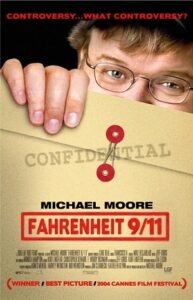
Starring: Ben Affleck, Stevie Wonder
We’ve talked about this one a bit already in the intro, but let’s dig a little deeper. At its heart, Michael Moore’s controversial movie ridicules President Bush. Critics were of the opinion that the movie demoralized the country and was anti-american propaganda, more so because it was an election year. Many conservative groups asked theaters not to screen it.
Disney also felt that this film could alienate customers and decided not to distribute it.
Fahrenheit 9/11 has the distinction of winning a top prize of the movie industry: the Palme D’or at the Cannes Film Festival. It also broke the record for the highest earning in the opening-weekend in the US for a documentary.
Dogma (1999) – Kevin Smith
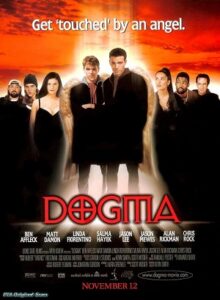
Starring: Ben Affleck, Matt Damon, Linda Fiorentino
Controversy embroiled this writer/director’s comic fantasy because the Catholic Church considered it an insult. The movie shows two fallen angels, Loki and Bartleby, discover a way to get back to heaven through a loophole in the Catholic dogma.
Its depiction of a fallible God was not acceptable to religious leaders, who perceived an anti-Christian message.
For many, the transformation God went through in this movie was particularly hard to digest – a change from the patriarchal God to a more playful and feminine God. The filmmakers received more than 300,000 instances of hate mail and death threats.
Stigmata (1999) – Rupert Wainwright
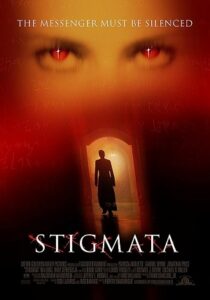
Starring: Patricia Arquette and Gabriel Byrne
The film centers on an atheist hairdresser from Pittsburgh who exhibits true stigmata and an ordained Jesuit priest who was a former scientist. A powerful Vatican cleric attempts to kill the hairdresser, and she and the priest go on the run.
Its release was very controversial because it showed a Vatican senior clergy ruthlessly trying to kill the hairdresser. Then there was the romance between her and the priest, as well as the manifestation of the Holy Stigmata which was said to border on demonic possession. Still, it earned $18.3 million in its first weekend.
Kids (1995) – Larry Clark
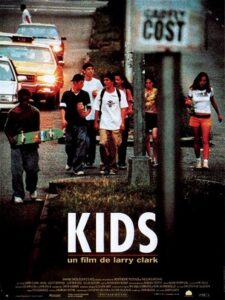 Starring: Leo Fitzpatrick, Sarah Henderson, Justin Pierce
Starring: Leo Fitzpatrick, Sarah Henderson, Justin Pierce
This 1995 drama shows one day in the life of a few teenagers in New York City. One HIV-positive amoral teenager sets out to have sex with as many virgins as possible and a local girl, who contracted HIV from him, is out to save his next target.
Some people considered it a window to our worst fears about what our children are doing when out there on the streets. Besides, it showed parenting at its worst.
However, the controversy over the movie mostly focused on the depiction of teenagers’ unrestrained sexual behavior and their use of profanity, alcohol, tobacco, marijuana and ecstasy.
Natural Born Killers (1994) – Oliver Stone
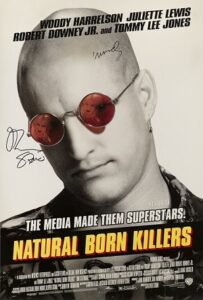
Starring: Anthony Quinn, Irene Papas, Michael Ansara
Many critics consider this movie to be one of the best of the 1990s. It decried the immorality and corruption of a society that turns serial killers into media celebrities and cultural icons.
The film’s protagonists are thoroughly rotten. They kill not only for love and passion, but also for fun. They go on a three-week murder spree. But, once arrested, they become celebrities.
Natural Born Killers holds a mirror to our media’s obsession with sensationalism, even with the vilest criminals in our society. The most controversial scenes in the movie are highly graphic, violent and disturbing. Vocal viewers panned it as loathsome and evil.
The UK authorities long delayed public screenings. They considered the movie to have inspired shooting sprees in the US, including the Columbine High School Massacre.
JFK (1991)- Oliver Stone

Starring: Kevin Costner, Kevin Bacon, Tommy Lee Jones, Laurie Metcalf, Gary Oldman
This movie is about DA Jim Garrison’s investigation of the assassination of John F. Kennedy. It was meant to demonstrate that Kennedy’s assassination was not the act of a disturbed Marxist loner but the result of a right-wing conspiracy.
It includes a lot of speculation about the misconduct of the government and the testimonies of many unreliable individuals.
The movie became embroiled in controversy even while it was being filmed. The media lambasted Stone for ladling out unverifiable hypotheses. American newspapers ran several editorials that criticized the liberties taken with historical facts, including the implication that President Lyndon B. Johnson was also involved in the conspiracy.
Cannibal Holocaust (1980) – Ruggero Deodato
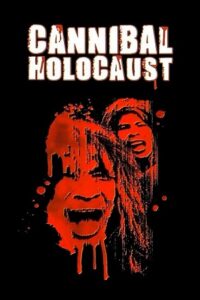
Starring: Robert Kerman, Francesca Ciardi, Perry Pirkanen
Cannibal Holocaust is ostensibly the story of a film crew that disappeared during the making of a documentary on the last surviving tribes of cannibals.
This movie caused a huge storm of controversy on its first release. It was not only extremely graphic, violent, gross, but also so realistic that people thought it really happened.
As a result, many countries banned it. Some of these scenes include castration, eating guts, forced abortion, several animal slaughters, gang rape, the impalement of a woman on a pole, and beatings with large hammers.
The director faced life imprisonment in Italy on charges of murder. He had to actually prove that no one was actually killed. However, real animals were killed on-screen as a part of the film. All this delayed the main release for five years. Moreover, the UK and many other countries banned it for 20 years.
The Message (1976) – Moustapha Akkad
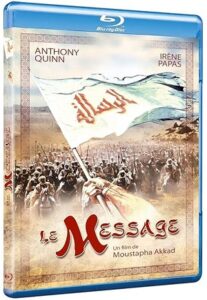
Starring: Anthony Quinn, Irene Papas, Michael Ansara
The original name of this 1977 movie was “Mohammad, Messenger of God.” Set in 7th century Mecca, it chronicles the beginnings of Islam and the life and times of the Prophet of Islam, Muhammad.
Problems arose with rumors that Peter O’Toole and Charlton Heston would be in the lead roles, and that Anthony Quinn would actually depict the prophet on screen.
Bloody riots went on for two days. Even Saudi Monarch King Faisal withdrew his offer of $60 million in funding, and banned filming on location in Mecca and Medina. This forced Akkad to move filming to Morocco and find financial backing from Colonel Muammar al-Qaddafi, the Libyan leader.
“The Message” replaced the original title because religious groups called the film an insult to Islam. Most Arab countries banned screenings.
Salò, or the 120 Days of Sodom (1975) – Pier Paolo Pasolini
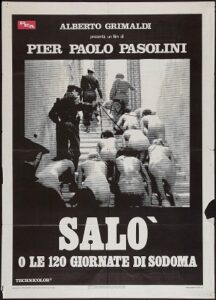 Starring: Paolo Bonacelli, Giorgio Cataldi, Umberto Quintavalle
Starring: Paolo Bonacelli, Giorgio Cataldi, Umberto Quintavalle
This movie is an example of the controversy generated by combining sex, torture, and politics. Its director, Pier Paolo Pasolini, was murdered in the release year, possibly over stolen reels of the original shots.
Salò is a loose adaptation of a novel by the Marquis de Sade. Unlike that original, the movie uses the last days of Mussolini’s fascist Italy as its setting. The plot is basic, but with an extremely graphic execution: Italian aristocrats abduct, torture, and sexually abuse teenage boys.
It’s this torture of underage-seeming boys that had numerous countries ban the movie for decades after its initial release. Salò has earned the questionable badge of “sickest film of all time.”
The Exorcist (1973) – William Friedkin
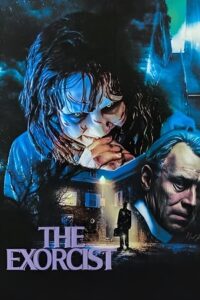
Starring: Ellen Burstyn, Max von Sydow, Lee J. Cobb
This landmark movie is an adaptation of the blockbuster book by William Peter Blatty. It claims to tell the true story of a 13-year-old boy from Maryland.
At its release, it was considered one of the most frightening, disturbing and shocking films ever made and faced some of the strongest opposition. During pre-release, nine deaths occurred. There was even a request for exorcising the set.
The movie revolves around a mother’s efforts to free her little girl from demonic possession. She organizes an exorcism with the help of two priests. Scenes include copious green puke, self-mutilation, masturbation with a crucifix, and innumerable obscenities and blasphemies. As a result, critics accused it of pornography. There were also allegation that the film used subliminal imagery. The film could not be sold on video in the UK for 15 years.
Despite all this, the movie won the Academy Awards for best screenplay and best sound.
Deep Throat (1972) – Gerard Damiano
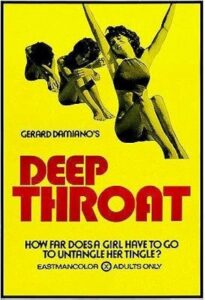
Starring: Harry Reems, Linda Lovelace, Dolly Sharp, Carol Connors
This controversial movie’s plot is minimal. A sexually frustrated woman wants to hear bells during sex, and so she follows her doctor’s advice. And no more was required: Deep Throat is a hardcore porn film — and the first of its kind to become a hit.
After the release, the film and the people associated with it became the epicenter of a cultural war. Its content got it banned in many places. The federal government even prosecuted actor Harry Reems on obscenity charges.
The UK banned it upon release, and reasserted the ban after ten years. After 2000, the DVD was finally allowed to be sold — but only in licensed sex shops.
A documentary, Inside Deep Throat, gives a glimpse into the film’s production history and its impact on American culture.
A Clockwork Orange (1971) – Stanley Kubrick
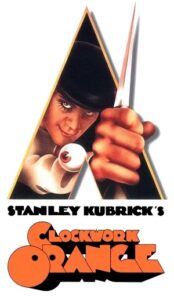
Starring: Malcolm McDowell, Patrick Magee, Michael Bates
This science fiction film is a satirical juvenile delinquency film adapted from Anthony Burgess’s novel. This is the story of Alex, the teenage protagonist who gets his kicks from ultra-violence and rape. Faced with prison, he volunteers for a behaviorist experiment that is supposed to take away his capacity to do evil. He returns to the world defenseless — a victim to his former victims.
The movie’s controversial glamorization of violence and sexual content drove vigorous opposition by religious groups. A number of scenes stirred feminist outrage: the extended, detailed rape scene, furniture in obscene female poses, a giant penis sculpture, and a snake gliding toward a woman’s private parts.
Media criticism and court decisions removed the film from circulation in Britain after just a year. It only became available again after the director’s death in 2000.
The Devils (1971) – Ken Russell
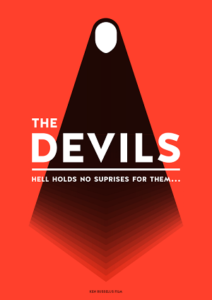
Starring: Oliver Reed and Vanessa Redgrave
This film was set in the city of Loudon in 1634, and was a loose adaptation of Aldous Huxley’s The Devils Of Loudon.
The film is about a 17th century womanizing French priest, Urbain Grandier, whose sex life, religious and political opinions earned him many enemies.
To bolster the corruption and witchcraft claims against him, nuns perform orgiastic rituals in the Church. This leads to his conviction and the burning of him alive at the stake.
The film was met with controversy and was greatly opposed due to the depiction of blasphemy and the general content. It faced censorship in all release countries and provoked outrage from Christian groups and audiences. Often, only heavily edited versions made it to screenings.
Bonnie and Clyde (1967) – Arthur Penn
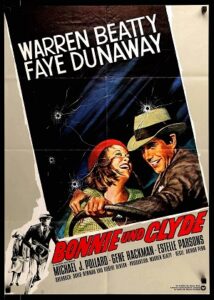
Starring: Warren Beatty, Faye Dunaway, Michael J. Pollard
The movie loosely tracks the true exploits of Clyde Barrow and Bonnie Parker during the 1930s. Craving adventure, Bonnie and Clyde embark on their legendary crime spree. The youth of the counter-culture movement of the 1960s identified with these rebellious and sympathetic characters.
However, the movie raked in its fair share of controversy because of the cascading violence as the two main characters descend into brutality. Critics saw the combinations of sex with violence and humor with murder as glorifying violence. Some people even said that Arthur Penn made this film as an expression of his own discontent with the nation.
Newspaper critics had wildly negative reactions to this film. Nonetheless, it gained critical acclaim and earned nominations for ten Academy Awards.
Baby Doll (1956) – Elia Kazan
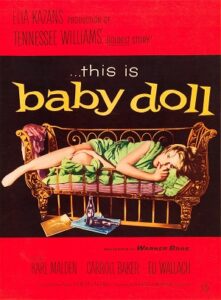
Starring: Karl Malden, Carroll Baker, Eli Wallach
Baby Doll is about a married, pretty 19-year-old girl who sleeps in a crib and sucks her thumb, while her husband waits to consummate their marriage when she turns 20. Meanwhile, a rival cotton gin owner who suspects the husband of burning down his gin, takes revenge in the most erotic way possible.
This film earned highly controversial ratings on its release. The Legion of Decency condemned it for being immoral. There was so much negative talk that it resulted in the movie’s withdrawal from more than 70% of the theaters in the US. Even film critics labeled it as a highly pornographic film.
Triumph of the Will (1935)– Leni Riefenstahl
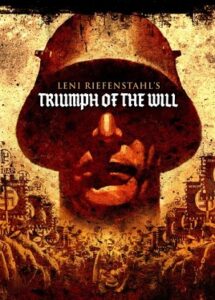
“Starring”: Adolf Hitler, Hermann Göring, Max Amann, Martin Bormann, Walter Buch
This movie’s reputation is one of the most controversial and horrific of all time – outside the context it was created in. Commissioned by Nazi leader Adolf Hitler, it showcases the 1934 Nazi party rally. Unsurprisingly, it faced nearly universal, years-long bans.
Hitler wanted Leni Riefenstahl to document the celebration of the sixth Nazi Reich Party Congress held in Nuremberg in 1934. As such, this film shows a glorified account of the unjust Nazi regime.
Critics considered it the most powerful propaganda film ever made. After the war, allies imprisoned the director for four years. Protests accompanied her release and later life. She was never able to clear the image of her Nazi-tainted past, in spite of her pleas.
The Birth of a Nation (1915) – D.W. Griffith
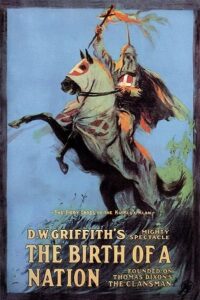
Starring: Lillian Gish, Mae Marsh, Henry B. Walthall
This film did not have a screenplay – Griffith just shot it as he went along. The story revolves around two white families separated by the American Civil War and reunited.
This movie excelled in outdoor and night photography and panoramic long shots but has become highly controversial for its outlandish racial prejudices, its vicious portrayal of blacks as conniving and sexually animalistic, its pro-Klan stance, and endorsement of enslavement.
It invoked a major censorship battle and riots broke out in many places in the US. Lawsuits and picketing plagued the film for many years. The movie stirred new controversy in 1993, when voting put it on a list of the top 100 American films.
Values change with the passing of time, and what was shocking in the past often does not impact us in the same way now. Yet the film makers who brave controversy to get their thoughts across live on forever through their unforgettable creations.
Note: This post was originally published on March 22, 2009. We updated it with some background on controversy in film and a list of additional controversial movies submitted by readers.







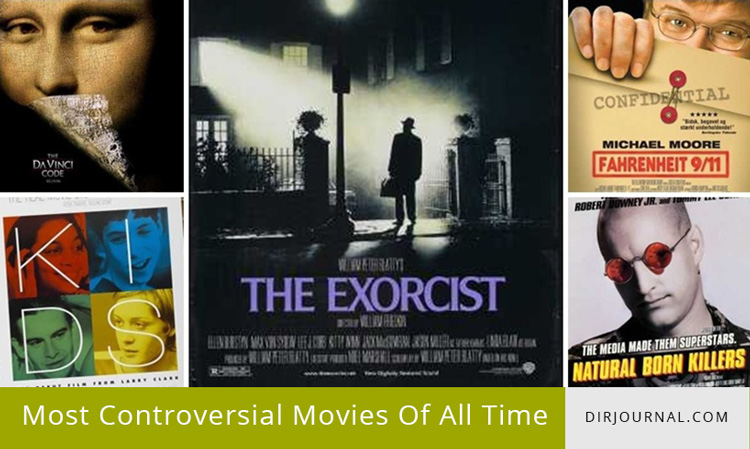

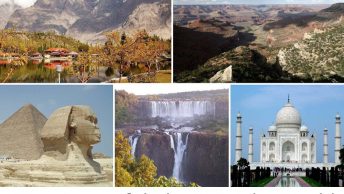




No Last Temptation of Christ?
That was one of my ‘favorites’! Pablo’s list is AMAZINGLY complete! Allow me to add a few: Anyone else also remember the controversy over Blair Witch Project? Or that Saving Private Ryan’s opening almost got an NC-17 rating? Or how many remember the film The Passover Plot – AT ALL?!?
How about William Friedkin’s “Cruisng”? Or anything by Gus Van Sant?!?
The original “Rollerball” from Norman Jewison had no sex, nudity, bad language, nor extreme on-screen violence – yet it was rated R. All The President’s Men dropped the F-bomb a dozen times but only gets a PG rating!
Excellent list! the controversies also add to the popularity of the movie..
For me; its an awesome list!
have you seen man from earth,dnt know if it caused any controversy or not
About A Clockwork Orange: The reason it was pulled, at Stanley Kubrick’s instigation, from the UK originally was because he was receiving death-threats and was faced with the possibilities of copy-cat acts of violence.
You should put in here also: Basic Instinct ,Rambo and Kill Bill 1,2
Get ready to add Angels & Demons to the list.
Ummmm, Lolita anyone?
other then that good list
AGREED!!
120 days of sodom should also be on the list
“In UK, the public screening was delayed because the film inspired similar shooting sprees in the US, which includes the Columbine High School Massacre.”
There is absolutely no proof whatsoever for this statement and you betray your intelligence with such an ignorant remark.
totally agree with faith, I have seen all of these films, except “Cannibal Holocaust” (which Im dl it now so that will be rectified), but the list really needs to have “Salo, or 120 Days of Sodom” probably one of the most bizarre films ever. If you can get the one with the subtitles not English dubs (it is an Italian film) hearing “MANGE!! MANGE!! MANGE!!!!” is way more powerful.
@mike, totally agree, thought was a fairly retarded statement to make. people still try to put blame on something other than the f-uped kids that did this. I dont now how many times I have heard, “They listened to Marlyn Manson” or, “They played that game Doom”. Now I can add “Natural Born Killers” to the list of causes. People are so idiotic.
[…] 3.: The most controversial Movies-of all Time. […]
“In UK, the public screening was delayed because the film inspired similar shooting sprees in the US, which includes the Columbine High School Massacre.”
Although I do believe (if I remember correctly) there were a couple of people in 94 (in the US) that claimed the movie inspired their acts, the movie is in no way related to the Columbine shootings which happened in 98. But all that was in the US, I have no idea what went on in the UK.
You are missing “Requiem for a Dream”, “American Psycho” and “Eyes Wide Shut”.
What about Lolita?!
It’s “Dogma” to shatter all myths.
dude its already there in the list. open up your eyes
Was expecting Caligula on the list.
Cannibal Holocaust?
Clearly the author of the list has never seen Salo the 120 Days of Sodom.
I am Intrigued at this as i have just finished watching Cannibal Holocaust, i must see Salo the 120 Days of Sodom.
Columbine happened 5 years after the movie’s release, so clearly that couldn’t have caused any controversy 5 years earlier. It’s true that the perpetrators of the Columbine massacre wrote about NBK in their journals but whoever wrote this article seems to have gotten his facts mixed up.
What this author is thinking of is the Dublane Massacre which delayed the release of the home video version, not the theatrical version.
Fact Check. Effing journies never get it.
Yeah, how can Caligula not be on the list. hmm :/
what about the golden compass? people were freaking out about that
Irreversible should have been on this list as well.
The most controversial movie of all time is THE LAST TEMPTATION OF CHRIST and it’s no where on here.Dogma did not have scores of people throughout the world marching in protest,this one did.
[…] Linkul. Taguri: controverse, filme, lista Altele, posibil asem?n?toare: – Meme ale YouTube-ului – Dumnezei in care nu credem – Iuhuhuuuhuuuuuuu!!! – Topul personajelor cinematografice […]
Should have included: Midnight Cowboy, Last Tango in Paris, Jesus Christ Superstar
[…] # Las películas más controvertidas de la historia [Dirjournal] […]
to speak of teenage massacres and not mention battle royal, are you people really on this “internet”
Erm… I think Baise-moi probably should be on that list….
Another one left out… Faces of death
“Faces of Death” was a series of five movies. Some scenes were taken from such as “ABC Wide World of Sports”, local television station news coverage, network news and home movies. The host claimed he was physician, but was found not to be. The films may yet be had from online sources. I suppose I don’t need to warn anyone wanting to see these scenes that many are tragic, even grizzly. The Japanese “Tetsuo” series, especially “Ironman”, is fairly terrifying.
Yes – some very interesting stuff here and some interesting film history that i have never heard of! Also interesting that there is such a diverse range here – from films that offended religious dogma to violence of many kinds to powerful stories out to challenge the status quo. Kind of makes you think that ‘controversial’ by itself isn’t much of a definition!
I think a few Japanese films could merit mention – though possibly not causing so much controversy simply because their circulation is rather limited and away from the mainstream. The ‘Guineapig’ films for instance, caused a considerable fuss (and i think a few arrests) with some people (slightly laughably when you see them) believing that they were genuine snuff movies. The Korean film Seom (The Isle – one of the best Asian films of all i think) has also caused an unwarranted amount of controversy, mostly due to the fact that real fish were killed onscreen (as if fishing is make believe!).
Oh and one more – how could i forget! Also rather obscure but really got people’s back up at the time. Sweet Movie by Yugoslav director Dusan Makavejev – a lunatic backlash art-house satire filled with scatological performance art, televised beauty contests featuring gynecological examinations to ensure virginity and other general taboo busting that managed to offend just about everyone, leading to exiled actors and almost universal banning. It is still banned in the UK due to a scene of one character doing an erotic and seductive dance for some children. In spite of everything though, it remains one of the few ‘shocking’ films that really has something interesting to say. Click my name for more info!
[…] Controversial Movies – Again, I wanna see Cannibal Holocaust […]
people are so easily offended none of these actually meet up to the task of offending me but then i’m not religious and full of hate to anyone that picks holes in my otherwise leaky faith.
there are a few on here which should be on another list, worlds greatest movies.
peace
brian
American History X?
[…] Entertainment Weekly’s No 5 Most Controversial Movies Ever Entertainment Journal’s one of the Most Controversial Movies Dailystab’s No 5 Most Controversial Movie Filmsite’s No 5 Most Controversial Films of All […]
Watch all the Top Most CONTROVERSIAL Movies at
http://freecontroversy.wordpress.com/top-most-controversial-movies/
Thanks!
BULLY should be right next to KIDS! That is one crazy movie!
I’m surprised that Disney’s “The Hunchback of Notre Dame” isn’t on here. We watched it in drama class and couldn’t believe it was rated G. It talks about discrimination, sexual desire, and murder. Not to mention that it all revolves around the concepts of Chrstianity and hypocracy. And I think it’s also one of the only Disney cartoons that says the word “Hell” in it.(meaning the place)
oh and Hamlet 2 should have been on here. I went to a protest for that movie.
Caligula should be on this list.
Impressive list.
And there’s no Requiem for a Dream?
i havnt sen ne of dis films!!!!! lol…..gota do watch!!! great list
Ill give you a real list…. Enjoy
1.Salo (1975, It.) (aka The 120 Days of Sodom)
2.Midnight Cowboy (1969)
3.I Spit On Your Grave (1978) (aka Day of the Woman)
4.Cannibal Holocaust II (1988)
5.Last House on the Left
6.Cannibal Ferox (1981)
7.Cannibal Holocaust (1980)
8.Henry: Portrait of a Serial Killer
9.In a Glass Cage
10.Nekromantik (1987)
11.Men Behind the Sun (1988)
12.Combat Shock
13.Eraserhead
14.Visitor Q
15.Irreversible
16.Ginea pig (series 1 through 6)
17.The Iron Man
18.Caligula (1979)
19.Oldboy
20.Tideland
21.August Underground’s Mordum
22.El Topo (1970)
23.Gummo
24.Ken Park (2002)
25.The Girl Next Door (the Jack Ketchum-based one)
26.Straw Dogs (1971)
27.Audition (1999)
28.Funny Games (2007)
29.Man bites dog
30.Ichi the Killer
31.Gozu
32.Redneck Zombies
33.Baise Moi (2000)
34.Maniac (1980)
35.Bloodsucking Freaks (1976)
36.Martyrs (2008)
37.The Holy Mountain (1973)
38.Aftermath/Genesis (Short Films)
39.Cutting Moments (1999) (Short Films)
40.Red Room 1 & 2
41.The Cook the Thief His Wife & Her Lover (1989)
42.Happiness (1998)
43.Sweet Movie (1974)
44.Pink Flamingos (1972)
45.Looselberries (1973)
46.Videodrome
47.Mondo Cane (1962)
48.La Donna nel Mondo (1963)
49.Mondo Cane 2 (a.k.a. Mondo Pazzo) (1963)
50.Africa Addio (1966)
51.Addio Zio Tom (1971)
52.Mondo Cane Oggi (a.k.a. Mondo Cane 3) (1986)
53.Mondo Cane 2000, l’Incredibile (a.k.a. Mondo Cane 4) (1988)
54.Africa Segreta (a.k.a. Secret Africa) (1969)
55.Africa Ama (a.k.a. Africa Uncensored) (1971)
56.Magia Nuda (a.k.a. Mondo Magic) (1975)
57.Addio Ultimo Uomo (a.k.a. The Last Savage) (1978)
58.Africa Dolce e Selvaggia (a.k.a. Shocking Africa) (1982)
59.Ultime grida dalla savana (a.k.a. Savage Man Savage Beast) (1975)
60.Savana violenta (a.k.a. This Violent World) (1976)
61.Dolce e selvaggio (a.k.a. Sweet and Savage) (1983)
62.The Faces of Death Series (1978-1996) (Six parts)
63.The Traces of Death Series (1993-2000) (Five Parts)
64.The Faces of Gore Series (1999-2000) (Three Parts)
65.Mondo Nudo (1963)
66.Il Pelo nel Mondo (1964)
67.Kwaheri: Vanishing Africa (1964)
68.I Malamondo (1964)
69.Le Schiave Esistono Ancora (a.k.a. Slave Trade in the World Today) (1964)
70.Mondo Balordo (1964)
71.Mondo Topless (1966)
72.Mondo Freudo (1966)
73.Mondo Bizarro (1966)
74.Sweden: Heaven and Hell (1968)
75.Mondo Trasho (1969)
76.Shocking Asia (1974)
77.Notti Porno nel Mondo (a.k.a. Mondo Erotica) (1977)
78.This Is America (a.k.a. Crazy Ridiculous American People {UK}, a.k.a. Jabberwalk) (1977)
79.This Is America – Part 2 (1977)
80.Brutes and Savages (1978)
81.Mr. Mike’s Mondo Video (1979)
82.Des Morts (a.k.a. Of the Dead) (1981)
83.The Killing of America (a.k.a. Violence U.S.A. {Japan}) (1982)
84.Mondo New York (1988)
85.Mondo Ford (2001)
86.Bandit Queen (1994, India)
87.Blue Velvet (1986)
88.The Brown Bunny (2003)
89.A Clockwork Orange (1971)
90.The Crime of Father Amaro (2002, Mex.)
91.Deep Throat (1972)
92.The Devils (1971, UK)
93. Hail, Mary (1985, Fr.) (aka Je vous salue, Marie)
94.Ilsa: She-Wolf of the SS (1974)
95.In the Realm of the Senses (1976, Jp.) (aka Ai No Corrida)
96.Kids (1995)
97.Kinsey (2004)
98.Last Tango In Paris (1972)
99.The Last Temptation Of Christ (1988)
100.Pretty Baby (1978)
101.A Real Young Girl (1975, Fr.) (aka Une Vraie Jeune Fille)
102.Requiem for a Dream (2000)
103.Romance (1999, Fr.) (aka Romance X)
104.Snuff (1976, Arg/USA)
105.Thriller: A Cruel Picture (aka They Call Her One Eye, Hooker’s Revenge) (1974, Swed.)
106.Titicut Follies (1967)
107.Triumph Of The Will (1935, Ger.)
108.Battle Royale (2000)
109.Dahmer (2002)
110.In My Skin (2002)
111.Dogville (2003)
112.Hard Candy (2005)
113.Shortbus (2006)
114.Frontier(s) (2007)
115.Hounddog (2007)
116.Inside (2007)
117.Zeitgeist: The Movie (2007) (controversial documentary )
118.Bastard Out of Carolina (1996)
119.I Stand Alone (1998)
120.Human Pork Chop (1993)
121.Mysterious Skin (2005)
122.Ted Bundy (2002)
123.God’s Lonely Man (1996)
124.The Gray Man (2009)
125.Mum & Dad (2008)
126.Eden Lake (2008)
127.An American Crime (2007)
128.Possession (1981)
129.Dumplings (2004)
130. Murder Set Pieces (2004)
wow! great list, you should have wrote the article.
Average list, but Ken Park should definately be on here.
This list is… ok. It’s just hard for me to reconcile… in order to be the most controversial, does everyone have to be aware of it? If so I definitely understand The Exorcist, Dogma, etc. But Cannibal Holocaust not so much. Even for shock value there are really only two scenes which stick out as being particularly disturbing, I won’t ruin it for you in case you plan to watch it ; )
Personally I think Stigmata is lame, I don’t think anyone who already knows how they feel about this sort of topic is going to get a sense of controversy from this film. And what about Brokeback Mountain?
I agree with a person here: it should be included others – BASIC INSTINT, BORN INNOCENT, SCHINDLER´S LIST, SHINING THROWING; with SHOCKING (and “bad” scenes)!
Well, EROTIC movies should be included too: what is the logical of them?
Please can someone give me a list of controversial romantic movies. I have seen only All Things Fair
How about Antichrist, by Lars von Trier? That was incredibly controversial in Europe.
I think I just creamed my panties. So many movies to watch. Thank you all who added. <3
mmmmm….i love creamy panties …lol….
where is “Caligula” ? Most controversial
Your all forgetting about an aussie movie called “Bad boy Bubby”.
‘A Serbian Film’. Shocking beyond belief. The most controversial film ever made. But beware.
A Serbian Film dir. by Sr?an Spasojevi?. Not saying it’s a good film. I’ve never seen more depraved subject matter, I’ll give them that.
[…] Recommended Article FROM http://www.dirjournal.com/entertainment-journal/most-controversial-movies-of-all-time/ […]
Birth of a Nation is fitting. America isn’t the shining beacon on a hill as described by Reagan. It’s a race filled, black and white are the only colors haven of poorly educated miscreants bent on making money.